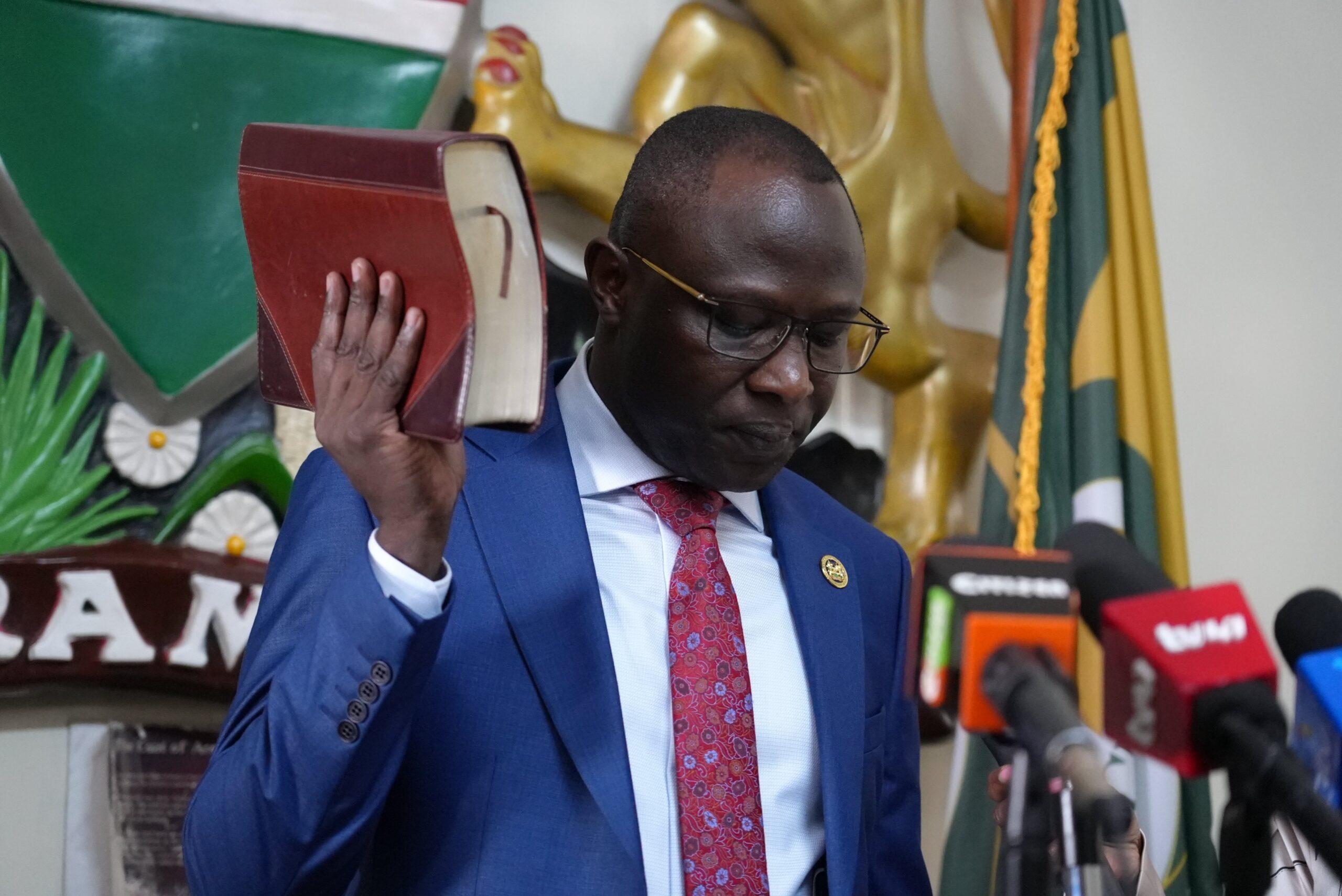
Can Ethekon deliver on boundary delimitation in time for 2027 » Capital News
NAIROBI, Kenya, Jul 12 – With a new leadership finally in place at the Independent Electoral and Boundaries Commission (IEBC), fresh questions are emerging over whether the electoral agency will have sufficient time, and funding, to conduct the long-overdue boundary delimitation process ahead of the 2027 General Election.
Chief Justice Martha Koome inaugurated the Edung Ethekon-led Commission on Friday after the High Court cleared a legal hurdle that had stalled the process.
The swearing-in had been placed in abeyance following a petition challenging the appointments but the court lifted an order stopping the exercise, only requring President Ruto to regularise two gazettements which offended the said order.
Speaking during a National Assembly retreat in Naivasha in January, Speaker Moses Wetang’ula had warned that the delayed reconstitution of the Commission had not only hindered by-elections in various constituencies and wards but may also have rendered it impossible to undertake the constitutionally required boundary review in time.
“The delay in reconstituting the IEBC has stalled crucial constitutional functions, including boundary delimitation, which is key to ensuring fair representation. We may have lost the window to undertake this critical task ahead of the next polls,” Wetang’ula cautioned.
Under Article 89 of the Constitution, IEBC is required to review the names and boundaries of constituencies at intervals of not less than eight and not more than twelve years. Any such review, the Constitution adds, must be completed at least twelve months before a General Election.
“It is indeed true that due to the delay in reconstituting the IEBC, we have lost precious time. It is unclear whether the new commissioners will manage to undertake boundary delimitation before the next election,” Wetang’ula said on January 29.
Budget deficit
Even if time permits, there is growing concern that the boundary delimitation process may collapse under the weight of financial constraints.
In 2023, the IEBC revealed that it required at least Sh7.2 billion to conduct the exercise—funds that were not allocated in the 2023/2024 national budget.
The Commission had only been allocated Sh4.53 billion, falling short by Sh14.3 billion from its estimated requirements for the boundaries review and pending legal obligations.
The Justice and Legal Affairs Committee (JLAC), led by George Murugara, flagged this shortfall during budget hearings, warning that without adequate funding, the Commission would be unable to carry out the constitutionally mandated exercise.
“We haven’t been given any money for boundaries delimitation. They are asking for Sh7.2 billion. If you don’t do this, we have no clue what the courts will do,” Murugara told the Budget and Appropriations Committee in May 2023.
The financial breakdown provided by IEBC showed that Sh1.1 billion was required for wages, Sh0.6 billion for equipment, Sh1.3 billion for legal fees, and Sh0.4 billion for ICT infrastructure.
IEBC needed an additional Sh1.2 billion for public education and another Sh1.2 billion for communication related to the exercise.
The poll agency estimated post-voter registration activities following the boundary review to cost Sh1.2 billion.
In addition to the Sh7.2 billion required for the boundary delimitation, the Commission had also sought Sh2.6 billion to settle mounting legal fees from cases dating as far back as 2013, including the 2022 presidential petition and numerous electoral disputes.
IEBC Chief Executive Officer Marjan Hussein had previously warned that the legal bills were accruing interest, further burdening taxpayers with rising costs.
Demographic adjustments
While a comprehensive review now seems increasingly unlikely under current constraints, Wetang’ula noted that the IEBC might still consider demographic adjustments within existing constituencies to reflect population changes—without increasing the total number of constituencies.
“The only realistic option now is internal demographic redistribution. But there will be no new constituencies created,” he explained.
Still, he emphasized the need for Members of Parliament to support the Commission once it begins operations, stressing that accurate electoral boundaries are essential for fair representation.
Confidence crisis
The newly sworn-in commission of Chairperson Ethekon and Vice Chairperson Fahima Abdallah, alongside Ann Njeri Nderitu, Moses Alutalala Mukhwana, Mary Karen Sorobit, Hassan Noor Hassan, and Francis Odhiambo Aduol—now face a dual challenge: navigating a severe budget shortfall while racing against time to meet constitutional deadlines.
In her address during the swearing-in ceremony at the Supreme Court, the Chief Justice reminded the Commission of Kenya’s troubled electoral past and urged the commissioners to restore public trust in the electoral process.
“Our electoral history is marred by violence and contested outcomes. The country is crying out for integrity, transparency, and accountability,” CJ Koome said.
Post Views: 0